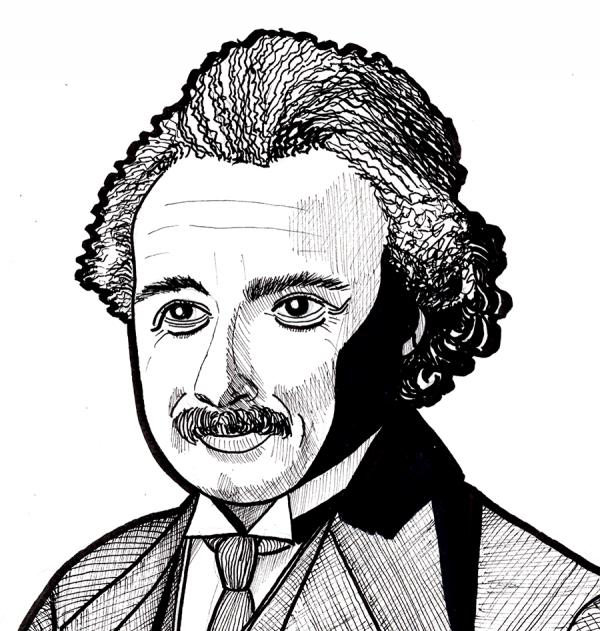
Growing up with Superman comics, Hollywood movies and Greek mythology can give you a distorted idea of the spiritual world. Colorful heroes with flashy powers hurl villains into the Phantom Zone, and a plucky bard with a fancy lyres can sing his way into hell to rescue his bride, if only he doesn’t look back.
This models the afterlife as a distant but reachable part of the natural world. The word “supernatural” gets tossed around without force, because there are rules for breaking the rules: like warp drive breaking the laws of motion or the cheat codes to the Matrix, you can hack your way into and out of the afterlife.
But spirituality is not magic, and prayers aren’t spells. While I’ve argued “spirit” isn’t strictly necessary for the practice of Christianity, most theologians would agree that the supernatural realm is a reflection of the grander reality of God and operates on His will – not a set of rules that could be manipulated by Man.
Even the idea of the “afterlife” isn’t necessary. We’re waiting in hope for bodily resurrection. We die, and stay dead, yet our essences live on in the mind of God, to be resurrected in a future world which outstrips even our boldest imaginations (though C. S. Lewis sure tried in The Great Divorce and The Last Battle).
Death, in this view, is a one-way trajectory. It isn’t likely that people are going to and returning from the afterlife, no matter how many tunnels of light are reported by hypoxia patients, because the afterlife is not a quasi-physical realm to be hacked into, but a future physical state accompanied by spiritual perfection.
So if no-one’s come back from Heaven to tell us about the afterlife, how do we know to seek it?
This is not trivial for someone who teaches robots to learn. In reinforcement learning, we model decision making as Markov decision processes, a mathematical formalism in which we choose actions in states to receive rewards, and use the rewards to estimate the values of those actions to make better choices.
But if no-one has returned from a visit to the state of the afterlife, how can we estimate the reward? One typical way around this dilemma is imitation learning: the trajectories of one agent can be used to inform another agent, granting it knowledge of the rewards in states that it cannot visit.
That agent might be human, or another, more skilled robot. You can imagine it as an army of robots with walkie-talkies trying to cross a minefield: as long as they keep radioing back what they’ve observed, the other robots can use that information to guide their own paths, continuing to improve.
But we’re back to the same problem again: there’s no radio in the afterlife, no cell service in Heaven.
One-way trajectories like this exist in physics: black holes. Forget the traversable black holes you see in movies from The Black Hole to Star Trek to Interstellar: a real black hole in general relativity is defined as a region of space where trajectories go in, but do not come back out; its boundary is the event horizon.
It’s called the event horizon because no events beyond the horizon affect events outside the horizon. Other than the inexorable pull to suck more world-lines in, no information comes back from the black hole: no reward is recorded for the unvisited states of the Markov decision process.
Death appears to be a black hole, literally and figuratively. We die, remain dead, and are often put in a cold dark place in the ground, communicating nothing back to the world of the living, now on a trajectory beyond the event horizon, heading to that undiscovered country of Shakespeare and Star Trek.
In our robot minefield example, that might be a mine with a radio scrambler, cutting off signals before any other robots could be told not to follow that path. But what if there was someone with a radio who was watching that minefield from above, say a rescue helicopter, signaling down the path from above?
In a world where spirituality is a reflection of the grander reality of God, there’s no magical hack which can give us the ability to communicate with the afterlife. But in a world where every observed particle event has irreducible randomness, God has plenty of room to turn around and contact us.
Like a faster-than-light radio which only works for the Old Ones, we can receive information from God if and only if He chooses to. The Old Testament records many stories of people hearing the voice of God – in dreams, in waking, in writing on the wall, in voices thundering from the heaven, in whispers.
You don’t need to treat the Bible like a fax from God to imagine that the information it contains could be inconceivably precious, a deposit of revelation which could never be received from any amount of human experience. No wonder the Church preserved these books and guarded them so jealously.
But even this sells short the value that we get from God incarnating as Jesus.
Jesus Christ, a human being, provides a direct model of the behavior we should follow, informed by the knowledge of Jesus God, the portion of the Trinity most directly comprehensible by us. This is the best example we could have for imitation learning: a trace of the behavior of a divinely inspired teacher.
No amount of flying around the Earth will bring someone back from the dead; there may very well be “a secret chord that pleases the Lord,” but you can’t sing yourself into the afterlife. Fortunately, the afterlife has already sent an emissary, showing us the behavior we need to model to follow Him there.
-the Centaur
Pictured: Guess who.